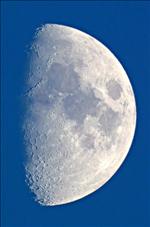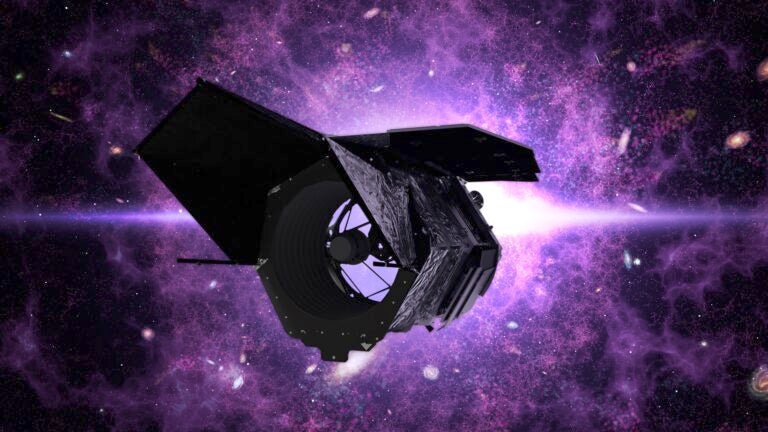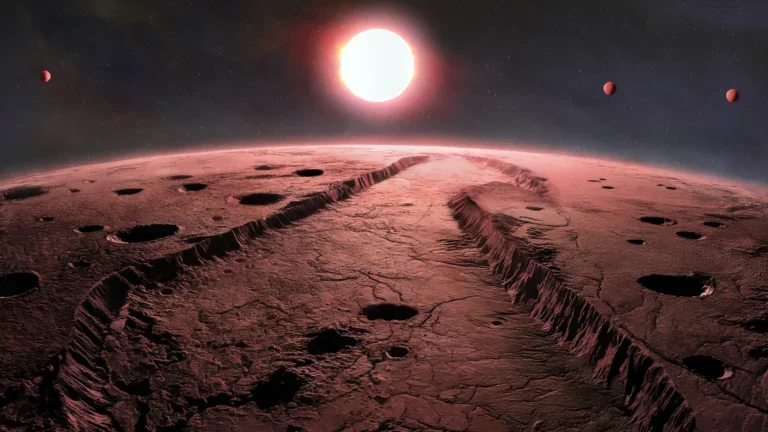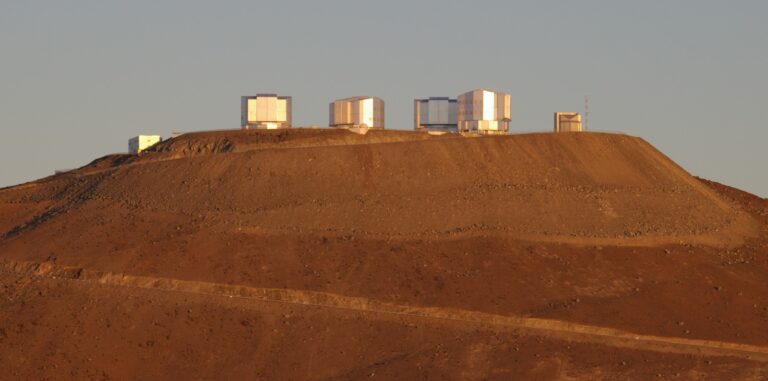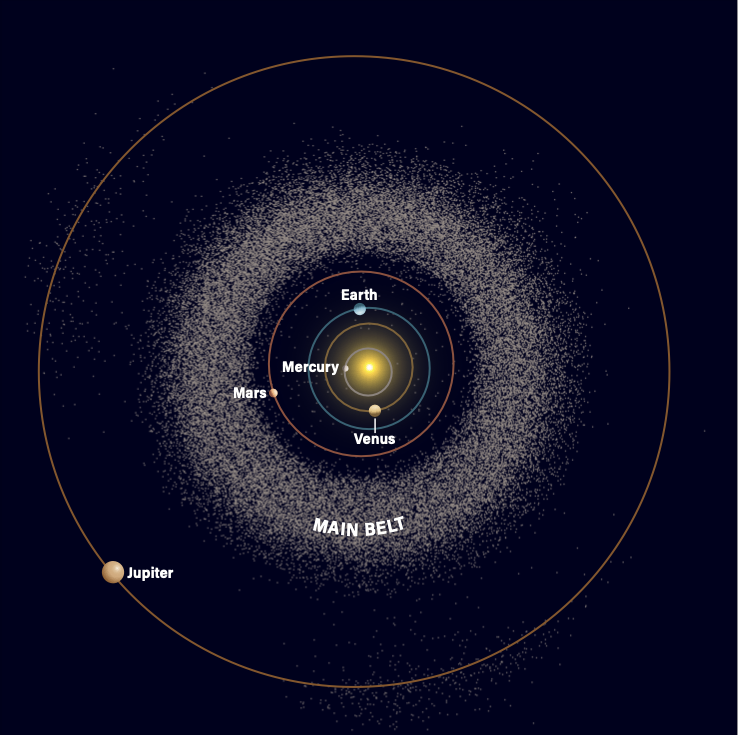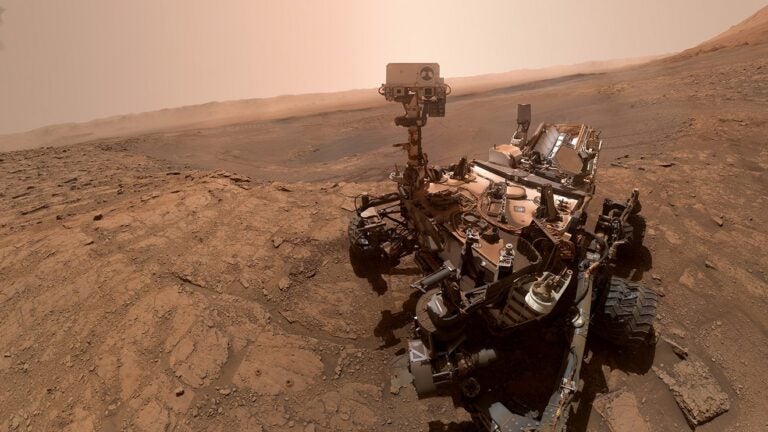The Earth and Moon have been locked in a celestial dance for at least 4.5 billion years. Prisoner to Earth’s superior gravity, the Moon is in a synchronous orbit (meaning it spins exactly once on its axis for every one revolution around Earth), forced to show the same face toward Earth for all eternity.
This situation is the result of tidal forces. The gravitational force of the Moon “pulls” on Earth’s oceans and crust, creating the twice-daily tides. Likewise, Earth’s gravity pulls on the Moon, distorting our companion so that it is slightly egg-shaped. These tidal effects produce bulges on the Moon’s surface, and Earth pulls on these bulges a little more than on the surrounding regions because of the concentration of mass there. Earth’s constant pull on the Moon’s tidal bulge caused its rotation to slow down from its much faster initial spin rate to its current rate of 27.3 days.
So how does this cause the Moon to recede from Earth? The tidal bulges produced on Earth by the Moon are not centered at the point on Earth’s surface directly below the Moon, but are shifted ahead of the Moon because of Earth’s faster spin rate. The gravitational force of the excess mass in this displaced bulge pulls on the Moon, slightly increasing its orbital velocity. In the 1600s, Johannes Kepler showed that when an object’s orbital velocity increases, its orbital radius will expand; thus, the Moon slowly recedes from Earth.
The effect of the Moon inching away from Earth is barely noticeable on human timescales. But millions of years from now, the effects will be more tangible. The tides will be weaker because of the Moon’s weaker gravitational pull. The release of tidal energy in Earth’s oceans and crust will continue to slow our own planet’s spin and thus increase the length of our day (it is increasing at a rate of one second every 50,000 years). Our distant descendants will not be able to view a total solar eclipse, because the Moon’s apparent diameter will always be smaller than the Sun’s, making only annular eclipses possible. So in at least one respect, we live in a very lucky time! — JIM BELL, CORNELL UNIVERSITY

